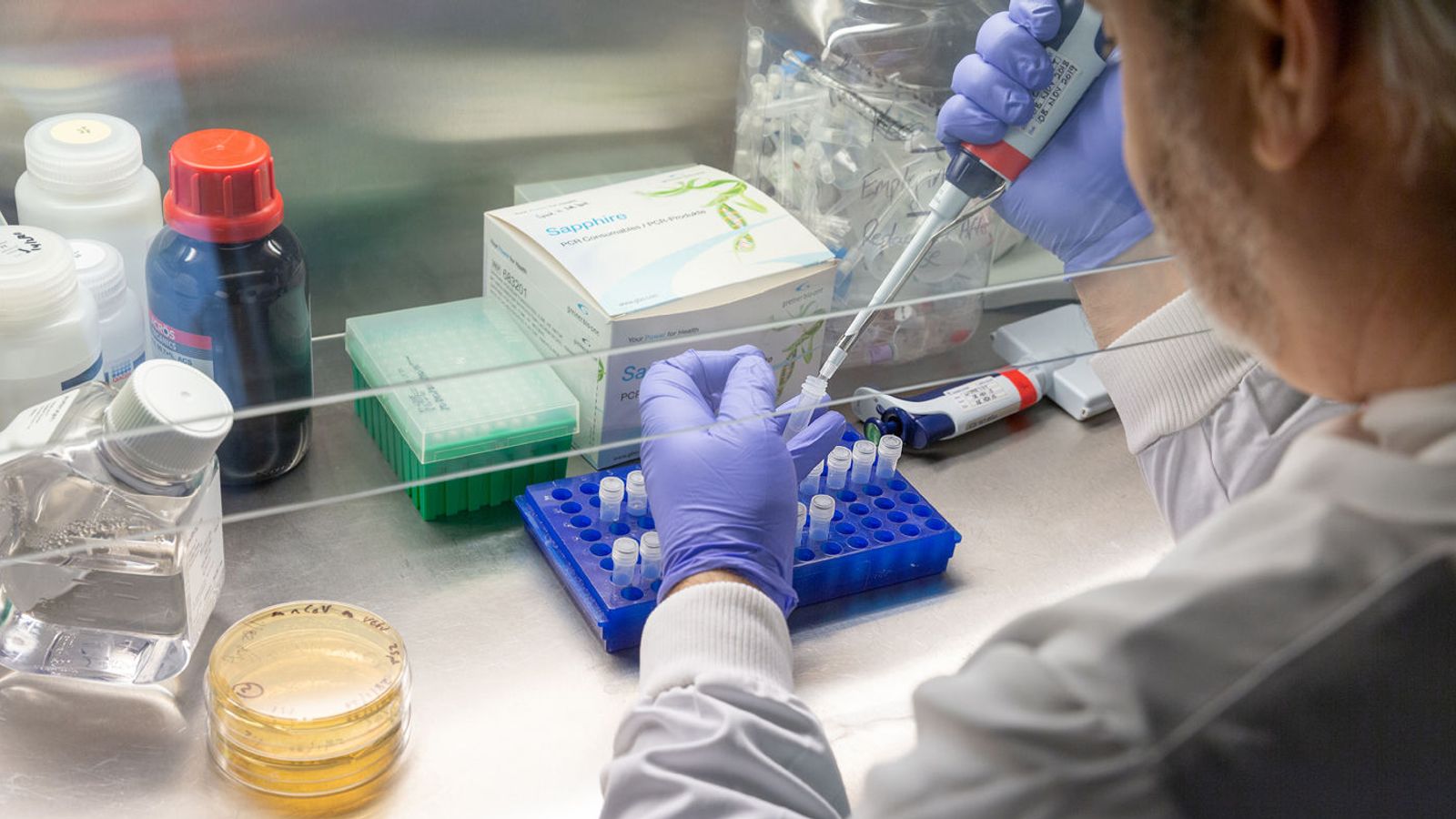A COVID-19 vaccine could be rolled out across the country in the first half of next year if trials are successful, according to a leading UK scientist.
Professor Robin Shattock, who heads a team developing a coronavirus vaccine at Imperial College London, has told Sky News that enough doses would be available for everyone in Britain if trials go “really well”.
Speaking to Sophy Ridge on Sunday, he said: “We anticipate if everything goes really well, that we’ll get an answer as to whether it works by early next year.
“And we have put in place the infrastructure to make that vaccine for the whole of the UK.
“So, assuming that the funding is there to purchase that vaccine, we could have that vaccine rolled out across the UK in the first half of next year.”
So far, 15 volunteers have been vaccinated, but Professor Shattock says this will be ramped up in the “coming weeks”, to include another 200-300 patients.
But he warned that there was “no certainty” that any of the vaccines currently being developed would work.
He said at the moment, scientists do not know what level of immunity people need to prevent infection, which makes the chance of success “difficult to predict”.
He continued: “If you only need a very small amount of immunity, I suspect most of the vaccines that are being developed will actually work, but if you need a very strong immune response, or particular quality of immune response, we’ll see that actually it will be shaking out to some of these candidates.
“We hope we will be the candidate, one of the candidates, that is successful, but there’s no certainty with any individual approach.”
Another trial is taking place at the University of Oxford, but Prof Shattock said that hopes of a vaccine becoming available by this September “feels very optimistic” – partly due to the number of infections falling in the UK.
When asked if there was a chance a vaccine might not work, he replied: “Now I think that’s a very low, low risk.
“I think we’re very lucky in the UK that we have two very strong candidates, the one from Imperial, the one from Oxford, and so we’re pretty well placed, but there’s still not a certainty that either of those two will work.”
He explained that any vaccine would need to be introduced “very cautiously”, adding that a vaccine would normally be studied for two years before being made widely available to the general public.
:: Listen to the Daily podcast on Apple Podcasts, Google Podcasts, Spotify, Spreaker
“And of course, we won’t have two years of safety for this vaccine, or any of the vaccines that are being developed,” he said.
“And so they still will need to be introduced very cautiously, with long-term follow up, as that pressure to get a vaccine in, and to get economies up and running is really very strong.”
Prof Shattock also said that until a vaccine is found, “cycles of virus” will continue and more local lockdowns will be needed.

